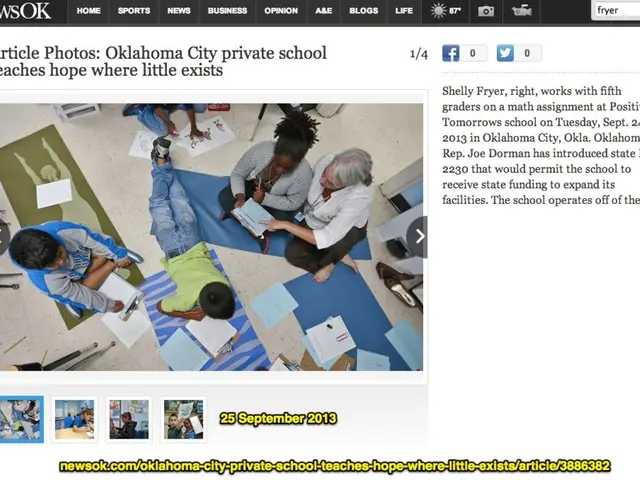Greece witnesses renewed demonstrations against an Israeli cruise ship
The "Crown Iris," an Israeli cruise ship, is scheduled to dock in the port of Piraeus on Thursday morning, but not without controversy. Recent protests against the ship in Greece have been motivated by opposition to Israel's military actions in Gaza and solidarity with the Palestinian people[1][2][4].
In Volos, Greece, hundreds of protesters gathered to demonstrate against the ship's arrival, blocking both exits of the port and attempting to prevent tourists from accessing the city center and buses intended for tourist destinations[5]. Protesters waved Palestinian flags and chanted pro-Palestine slogans, viewing the visit of Israeli tourists as support for Israel's actions in the Gaza conflict.
The protests have occurred in multiple Greek ports, including Syros, Piraeus, Rhodes, Crete, and Volos. In Syros, the protests were strong enough to force the ship to reroute to Cyprus, as onboard security deemed it unsafe for passengers to disembark amid the unrest and delays caused by protesters[3]. In Volos and Piraeus, riot police intervened using stun grenades and formed cordons to enable Israeli tourists to disembark despite the protests[1][2].
The demonstrators’ messaging includes calls for Greece not to become a "playground" for Israeli Defense Forces (IDF) soldiers or supporters, framing the protests as part of a wider anti-Zionist campaign and a show of solidarity with Palestinians facing military assault[2]. These protests align with broader nationwide and international demonstrations against Israel’s Gaza war, with large mobilizations in Greece occurring on August 10, 2025, where tens of thousands protested across more than 120 locations[2].
Greek authorities have responded with police deployments to maintain order and allow the Crown Iris to dock and for tourists to continue their itineraries. However, there is evident tension between maintaining public order and addressing protesters' concerns. The Greek government remains under pressure as these protests have political and diplomatic repercussions; Israeli officials have engaged with Greek counterparts to resolve incidents like the Syros reroute promptly[3].
Future demonstrations are expected to continue given the ongoing Gaza conflict and the symbolic nature of the Crown Iris as an Israeli vessel touring Greek ports. Pro-Palestinian groups have explicitly planned further actions aimed at tourist destinations and ports to maintain visibility and pressure, emphasizing that Greece should not be a haven for supporters of the Israeli military actions[2].
In summary:
- Motives: Opposition to Israel's Gaza war; solidarity with Palestinians; rejecting Israeli tourism as endorsement of military actions[1][2].
- Responses: Greek riot police used stun grenades and formed cordons; Israeli passengers allowed to continue; Israeli diplomats engaged Greek officials[1][2][3].
- Key protest sites: Ports of Syros (reroute to Cyprus), Volos, Piraeus, Rhodes, Crete.
- Future Outlook: Further planned protests at Greek tourist ports/islands; ongoing tensions due to Gaza conflict[2].
These events reflect a significant escalation in activism linked to the Gaza conflict in Greece, intersecting with tourism and geopolitical sensitivities. The protests are stated to harm Greece's image in Greek media, with many politicians and citizens, as well as tourism associations, describing the protests as senseless. The "Crown Iris" is owned by an Israeli shipping company.
[1] Skai broadcaster [2] Greek Reporter [3] Times of Israel [4] Al Jazeera [5] ANA-MPA, the Hellenic News Agency
The Greek government is under pressure to address the concerns of protesters and find a resolution to the ongoing dispute over the visit of the "Crown Iris," an Israeli cruise ship, in light of its political and diplomatic repercussions [3]. Vocational training sessions could be implemented for community members to promote dialogue, understanding, and peaceful conflict resolution, aiming to mitigate future protests and foster a more harmonious coexistence between different groups [5].
In the realm of general news, this situation underscores the complexities of global politics, underscoring the need for ongoing conversations around community policy and the role of tourism in a sensitive geopolitical context [1][2]. Vocational training programs aimed at fostering understanding and peaceful conflict resolution should be considered as a part of broader efforts to promote constructive dialogue and maintain social harmony in such situations.






